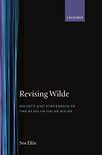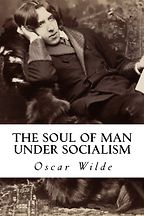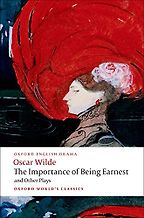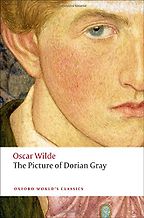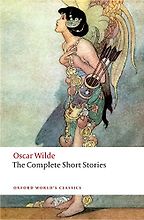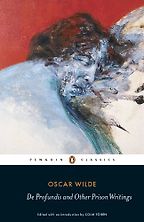A popular perception persists of Oscar Wilde as an idle aesthete. Is this a fair portrayal?
It is a carefully cultivated image that Wilde developed. For example, when he was told to take a scene out of The Importance of Being Earnest by the actor-manager George Alexander, he replied: ‘This scene you feel is superfluous cost me terrible exhausting labour and heartrending nerve-wracking strain. You may not believe me, but I assure you that it must have taken me fully five minutes to write!’
Yet, for a large part of his career, he was very hard-working. The Importance of Being Earnest went through about eight drafts; it started off about two and a half times the length of its final compressed version. Wilde honed every single word. But he loved to give the impression that he just dashed it off as lazy brilliance.
I also think that Wilde was strongly opposed to the kind of Victorian work ethic that was about dutifulness. There was the idea that as long as you have character, integrity, dedication and self-control then even the mediocre can flourish. This kind of Samuel Smiles self-help ethic in many ways supports free market and laissez-faire ideology. It justifies a highly competitive market place. It complements the pseudo-Darwinian idea that merit will rise, and that the system is not fixed. But by contrast, Wilde was acutely aware of how far the system is actually fixed.
So on the one hand, Wilde’s aesthetics of beauty, idleness and genius suggests that he is so brilliant that he does not need to put any effort into his work. But it also resists utilitarianism and that kind of competitive ethos.
Were there more direct ways in which he was politically engaged?
It’s a wonderful mix. He described himself as a socialist and indeed something of an anarchist. He signed a petition for the reprieve of some anarchists who were condemned to death in Chicago. He bailed out John Barlas, a young revolutionary who was arrested for firing off a pistol near the House of Commons. And he expressed his admiration for Russian nihilists and many of the leading socialists.
However, he was no George Bernard Shaw. He did not campaign on county councils. He was not part of active political groups.
Intellectually, the brand of socialism that he propounded in The Soul of Man under Socialism is a fantastically ideal one in which the state provides you with all that you need, and then you are free to do whatever you like. It’s the idea that everybody gets to be a dandy-aesthete if that’s what they would like. They would not be obliged, as socialists, to do some hard graft on local committees, or forego their personal taste in luxury.
In The Soul of Man under Socialism, Wilde writes that ‘[a] map of the world that does not include Utopia is not worth even glancing at.’ Is this the utopian element of his politics?
Yes. More generally, utopianism was a strong element in late nineteenth-century socialist politics. Think of someone like William Morris, who was a utopian visionary. Even George Bernard Shaw, the archetypal Fabian socialist, was a utopian in certain respects. His plays are full of visions of the future. These visions are not necessarily ideal ones, but they explore the idea that ‘if we go from here, this is where we will end up.’ Wilde keyed into this current in radical politics, and then took it rather perversely in his own direction.
Can you tell us more about the political vision of this work?
He sets out a vision in which there is no longer any obligation upon the individual to work to support themselves, to submit themselves to any kind of authority whatsoever.
Partly, he upturns many of the pious expectations concerning socialism. Wilde’s socialism is not about the lucky few giving up their luxury for the sake of the suffering many. It is not based in any kind of idea of philanthropy, charity or equality of division for all. Instead, it is based on the pleasure principle. It is based on the idea that there is enough to go round. The state will work it out. Machines will do all the work. No more unpleasant labour!
Glossing over how all of this was actually to be achieved, Wilde goes on to argue that sympathy with suffering is not ennobling, but painful and debasing.
What you should have instead, he says, is sympathy with pleasure. You should want everyone else to be as joyful, happy and free as you are. He argues that all authority is degrading. Legal, judicial and prison systems degrade the people imposing the power just as much as the prisoners and convicts. He also argues against marriage and the family, which he sees as constrictions on the individual.
“In The Importance of Being Earnest, the lies turn out to be truths”
It is possible to read The Importance of Being Earnest alongside such a political message, because in that play everybody somehow defies the confines of authority. All the young people do exactly as they wish, and justify it as they go along. It all ends up completely happily, with everybody getting what they want. They are all so wonderfully selfish.
That’s an interesting pairing, because The Importance of Being Earnest might otherwise be read as a rather frivolous farce. Wilde described it as written ‘by a butterfly for butterflies’.
The ‘butterfly for butterflies’ fits in with Wilde’s self-image as an intellectual aesthete. But actually, I think that it is an anarchic play.
In some ways it conforms to a conventional farce structure. Most farces start with somebody lying, committing a crime, or making a mistake. Then they lie to cover it up. From that lie, more and more complications emerge. At the end of most farces, the original lie or sin is revealed and forgiven. Authority is re-imposed. People go back into their proper place.
However, in The Importance of Being Earnest, the lies turn out to be truths. Everybody is allowed to keep lying. In fact, it’s impossible to separate lies and truth in any meaningful way. The characters get to be who they were pretending to be. While Lady Bracknell is an embodiment of society’s authority and etiquette, she wields no power by the end.
Does the idea of anarchy also register on the level of language?
Yes. Some of it is in the puns, but also in the way that language in that play means whatever you want it to mean. One of my favourite bits is when Algernon is pretending to be Ernest. Jack enters in mourning for his brother Ernest, his alter-ego whom he has decided to kill off. At this point Cecily runs in and says you’ll never guess who has come to visit—your brother Ernest! Jack says, ‘I haven’t got a brother’, to which Cecily replies: ‘Oh don’t say that! However badly he may have behaved to you in the past he is still your brother’.
Jack has inadvertently blurted out the truth—that he hasn’t actually got a brother—but that magically turns into something else, and the scheming continues.
That happens all the way through: whatever somebody says can be manipulated. Language becomes a means of creation. For example, Cecily writes in her diary that she is engaged to Ernest, at which point she co-opts Algernon to become Ernest and announces that they are engaged. And by the end of the play, that has become true.
There is a sense in which words are infinitely adaptable to any occasion. There is an elasticity and playfulness to language. Consider Dr Chasuble’s sermon on the meaning of the manna in the wilderness, which can be preached at funerals, harvest celebrations, christenings, confirmations or indeed any kind of religious festival.
“There is a linguistic surface of puns, witticisms, epigrams and paradoxes that is sometimes dismissed by critics as absurd. But underneath, there is a phenomenal analysis of power”
But conversely, the play reveals how society controls the individual. When Lady Bracknell interviews Jack, she uses etiquette to exert complete control. The play is full of rules, which range from rules on how to eat a muffin correctly, to rules about old and new money and having to have parents to prove your family lineage.
Could it also be described as a feminist play?
Years ago, my college tutor Christopher Butler talked about the play as a matriarchy, and that was the starting point of my work on Wilde. It is not just Lady Bracknell who is in charge, but also Cecily and Gwendolen. They take the lead in their relationships, and do the proposing. So yes, in this play it is the women who are the ones with the real power and authority.
Is this a wider theme in Wilde’s plays?
In Wilde’s plays, there is a linguistic surface of puns, witticisms, epigrams and paradoxes that is sometimes dismissed by critics as absurd. But underneath, there is a phenomenal analysis of power—of who has economic power, and of how morality is embedded in power systems that control how people behave and police admission to society.
Women are very clearly subject to these forms of power. They don’t have independent economic means: it depends on whom they marry and what kind of power they hold within that marriage. Morality is both a system used against women and a system that certain women know how to use.
Indeed, some plays are about women who are clever enough to play the game, and to get around that system. Mrs Erlynne in Lady Windermere’s Fan and Mrs Allonby in A Woman of No Importance are women who very consciously play the system. There’s a wonderful line in A Woman of No Importance about how it is essential to play with fire because it is those who play with fire that never get burnt.
Again, there is a point where Mrs Allonby talks about how life is so much better for women than men because there are so many more rules imposed on them, so there are so many more rules they can break. Mrs Allonby is a character who is able to stand above the system and work her way around it.
Wilde also depicts the lives of people who have accepted conventional morality, and shows how those lives are in danger of being wrecked. Mrs Arbuthnot in A Woman of No Importance is a fascinating study of a woman whose instincts are very clearly contrary to the morality she believes in. She is tortured by guilt, but that guilt becomes a type of power. As a victimised single mother, the role of the victim or martyr becomes her means of resisting Lord Illingworth, and his desire to take charge of their son.
One of the aphorisms in the preface to The Picture of Dorian Gray is that ‘all art is quite useless’. Is this an aestheticist novel?
The million-dollar question is ‘what is an aestheticist novel?’. Certainly, it’s impossible to read The Picture of Dorian Gray as making any straightforward statement about aesthetics.
“The novel throughout takes joy in the surface and look of things”
People have tried to offer such interpretations. For example, they have read the novel as about the dangers of treating life purely as art, as Dorian does. He treats fundamental life experiences—such as a woman committing suicide because he has rejected her and broken her heart—as though it’s a play, or merely an aesthetic spectacle. The novel can then be read as a warning against seeing beauty as the only valuable quality in life.
The trouble with such interpretations is that it is impossible to read the novel without taking aesthetic pleasure in it. The novel throughout takes joy in the surface and look of things.
There is one point when Dorian plans to take some drugs; just as he is doing this wicked thing, the narrative stops and gives a wonderfully detailed description of the Florentine cabinet that contains the drugs. It pauses to appreciate the cabinet before the story continues.
The novel itself demands a similar aesthetic appreciation from the reader. If you wish to participate in the novel, you have to appreciate it in the way that Dorian appreciates cabinets, carpets, tapestries and jewels.
Is beauty deceptive or can beauty be a moral guide? Does the novel suggest that if you judge by appearances you’ll be led astray, like the people who think that Dorian can’t be guilty of the crimes that he has committed because he is beautiful? Or does the ending of the novel, in which Dorian magically becomes ugly as he is ‘punished’ for his sins, affirm the link between morality and beauty? You can offer equally convincing readings either way round, but only by discarding half the evidence in the novel.
So, it’s a novel that engages with beauty, aesthetics and the idea of what an aesthetic life would be, but it offers no answers.
In the novel, Lord Henry Wotton sends a yellow book to Dorian that is described as ‘poisonous’. What is the significance of this book?
The most immediate reference for the yellow book is J K Huysmans’s novel À rebours (Against Nature). This is a French novel about an aristocrat who indulges in a purely amoral life of the senses. There is a way in which Dorian models his life on that.
But you could also interpret the book as Walter Pater’s The Renaissance. The conclusion to Pater’s book is about living your life with this ‘hard, gemlike flame’; life is not about the fruit of experience, but experience itself.
Pater removed this conclusion in the second edition of the book, because he was worried that it might corrupt some of young men into whose hands it fell. You can read Dorian Gray as a ‘what-if’ book. What would it look like if you were corrupted? And is that a realistic fear or not?
It’s also worth bearing in mind that although Dorian blames the book on his corruption, the preface to the novel challenges the idea that a book can corrupt. It holds that there is ‘no such thing as a moral or an immoral book. Books are well written, or badly written. That is all’.
Tell us about Wilde’s short stories.
I love all of the stories, but I’d select two for particular attention: ‘The Fisherman and his Soul’ and ‘The Portrait of Mr W H’. While many of Wilde’s stories are apparently simple but have a twist, these two are obviously and inescapably complicated.
‘The Fisherman and his Soul’ goes wonderfully with Dorian Gray. The story partly resembles Hans Christian Andersen’s ‘The Little Mermaid’: the fisherman falls in love with a mermaid and, in order to enter the sea and be with her, he has to cut his soul away.
In a sense, it’s a version of the Faustian bargain. In Wilde’s rendition, the soul becomes another character in the tale once it has been cut away. It goes off and has these extraordinary adventures, and comes back and tries to tempt the fisherman with the experiences.
The story gets variously interrupted. Contravening the straightforward trajectory of many fairy tales, there are hugely detailed descriptions of the exotic cities, merchants, and bands of vagabonds that the soul encounters on its adventures. These descriptions, like those in Dorian Gray, are just beautiful to read. They are there for their own sake.
The story is framed by the priest, who refuses to bless the fisherman and the mermaid. But it’s impossible to read the story in any kind of straightforward Christian framework. There are witches, and the priest is proved wrong in all sorts of ways.
In general, many of Wilde’s tales invite moral readings and then confound them. They offer versions of a simple moral that then doesn’t quite fit with the whole of the story. You are left unsure within which framework you are supposed to be reading them. To complicate matters further, the apparently simple morals of the various stories contradict each other.
Get the weekly Five Books newsletter
‘The Portrait of Mr W. H.’ is difficult to read within any one genre. Is it a short story or is it actually a piece of literary criticism on Shakespeare’s sonnets?
It offers one of the earliest readings of homosexual desire within Shakespeare’s sonnets. It contains detailed analysis of Shakespeare’s imagery and how you might interpret the sonnets, but that’s all set within a story. Is this being offered as a serious reading or is it being offered as a mistaken reading? Is it a story about how Shakespeare’s sonnets are homoerotic? Or is it a tale about how that is a mistaken theory? How do you decide if any literary reading is true?
It’s a sort of endless and recessive hall of mirrors in which what you ultimately see is yourself reflected. It’s wonderfully playful and phenomenally daring, particularly when you consider that it was published at the end of nineteenth century.
What events led to Wilde writing the work that has become known as De Profundis?
Very simply, Wilde wrote it as a letter to Lord Alfred Douglas while he was imprisoned in Reading Gaol. He was stretching the rules: he was allowed to write letters in prison, so he wrote a letter that was nearly one hundred pages long once it was published.
Whether Lord Alfred Douglas was really the intended readership, is highly dubious. Once he had finished writing the manuscript in prison, Wilde asked for several copies of it to be made, for excerpts to be sent to other people, and for copies to be kept by More Adey and Robert Ross because they were his literary executors and therefore ought to have all of his works. All of these things suggest that it is not simply a letter to an ex-lover.
“He says that sending somebody to prison for loving boys or men—and the idea that prison will stop you from doing so—is patently ridiculous”
Wilde always plays with genre. Genre is both how works are marketed and sold, and it also forms the rules and expectations for how we read works. As with so many of Wilde’s works, it is hard to know how to categorise De Profundis.
It gets called a prison letter but it is also a kind of apologia—a self-justification rather than an apology. It is also a form of biography, a manifesto on art, a defiant rejection of society’s standards and judgements, and a declaration of purpose for his future plans for artistic self-definition.
Wilde was extremely successful in shaping his future reputation with De Profundis. For example, he wrote that ‘I was a man who stood in symbolic relations to the art and culture of my age’, and this has helped shape the way that he has been thought about ever since.
Did he always think that he had been wrongly imprisoned?
Basically, yes. After his conviction, he did not deny doing the things for which he was imprisoned. But he says that sending somebody to prison for loving boys or men—and the idea that prison will stop you from doing so—is patently ridiculous. He quite explicitly says in De Profundis that the laws that condemned him were wrong and unjust laws.
He continued to be defiant after he left prison, with ‘The Ballad of Reading Gaol’, and his letters to the Home Secretary and to the newspapers. He campaigned for prison reform, inveighing against the treatment of children and the mentally ill in prison.
The only time when he submitted to the law was when he appealed to the Home Secretary for early release on the grounds that he was losing his sanity. At that point, he characterised his homosexuality as a sickness, a disease. He actually quoted as authorities people like Cesare Lombroso and Max Nordau, who pathologized the criminal and condemned homosexuality. That was his lowest point.
Did his political views change when he was imprisoned, or is there continuity with his earlier political vision of The Soul of Man under Socialism?
There is a great deal of continuity. In ‘The Ballad of Reading Gaol’ and De Profundis, he excoriates the prison system and the hypocrisy of society. In both of these works, he reverses the idea of the prison hierarchy, just as he had in The Soul of Man under Socialism. It is the prisoners who are compassionate and have imagination, and it is those who exercise authority over them who are debased and rendered cruel by that authority.
The one point on which Wilde did change—which is more philosophical than political—was on the value of suffering. In The Soul of Man under Socialism, he says that sympathy with suffering is simply degrading. In part, he had been hitting back against Victorian sentimentalising of suffering, and the idea that the poor and weak are somehow purified or ennobled by their suffering.
In De Profundis, he recants that view. He says that suffering actually does have value. Suffering is where emotion and form come together. Some of the most intense experiences, like being imprisoned where time stops and all you have are your thoughts, mean that you can see the whole of your life: you live every moment in time simultaneously. It gives a different kind of emotional depth; compassion and imagination grow from that.
We haven’t talked about the fact that Oscar Wilde was Irish. Is that something that is important to bear in mind when reading his works?
Wilde shifted his national allegiances throughout his life, in part according to convenience. At times, he downplayed his Irishness. For example, he lost his Irish accent when he went to Oxford. He could talk of ‘our English land’, and align himself with Shakespeare, Milton, Wordsworth, Shelley and Keats as one of the greats of English literature. Yet when Salome was refused a licence for performance, he made very clear that he was not English but Irish. At one point he talked of applying for French citizenship, because the French appreciated the true value of artistic freedom.
Having said this, he was extremely critical of British rule in Ireland, and was a staunch defender of Irish nationalism throughout his life. I think that his Irishness meant that he was very aware of power—the power that was exercised over his country, and the self-justifying narratives of power.
But the Irishness of his works? There’s a huge discussion about this among Wilde critics. He appropriates material from Irish fairy tales, legends and folk stories. There is also a sense in which although he passed himself off as part of English high society, he did so in a way that was all about performance. Many of his works denaturalise and deconstruct the image that English society holds up to itself. His humour was wonderfully subversive and corrosive.
As with his sexuality, his Irishness placed him outside the mainstream. He was an insider-outsider with genre, and he was an insider-outsider with the literary establishment. He learned the rules, and could play them, but absolutely to his own advantage.
Five Books aims to keep its book recommendations and interviews up to date. If you are the interviewee and would like to update your choice of books (or even just what you say about them) please email us at [email protected]
Five Books interviews are expensive to produce. If you've enjoyed this interview, please support us by donating a small amount.

